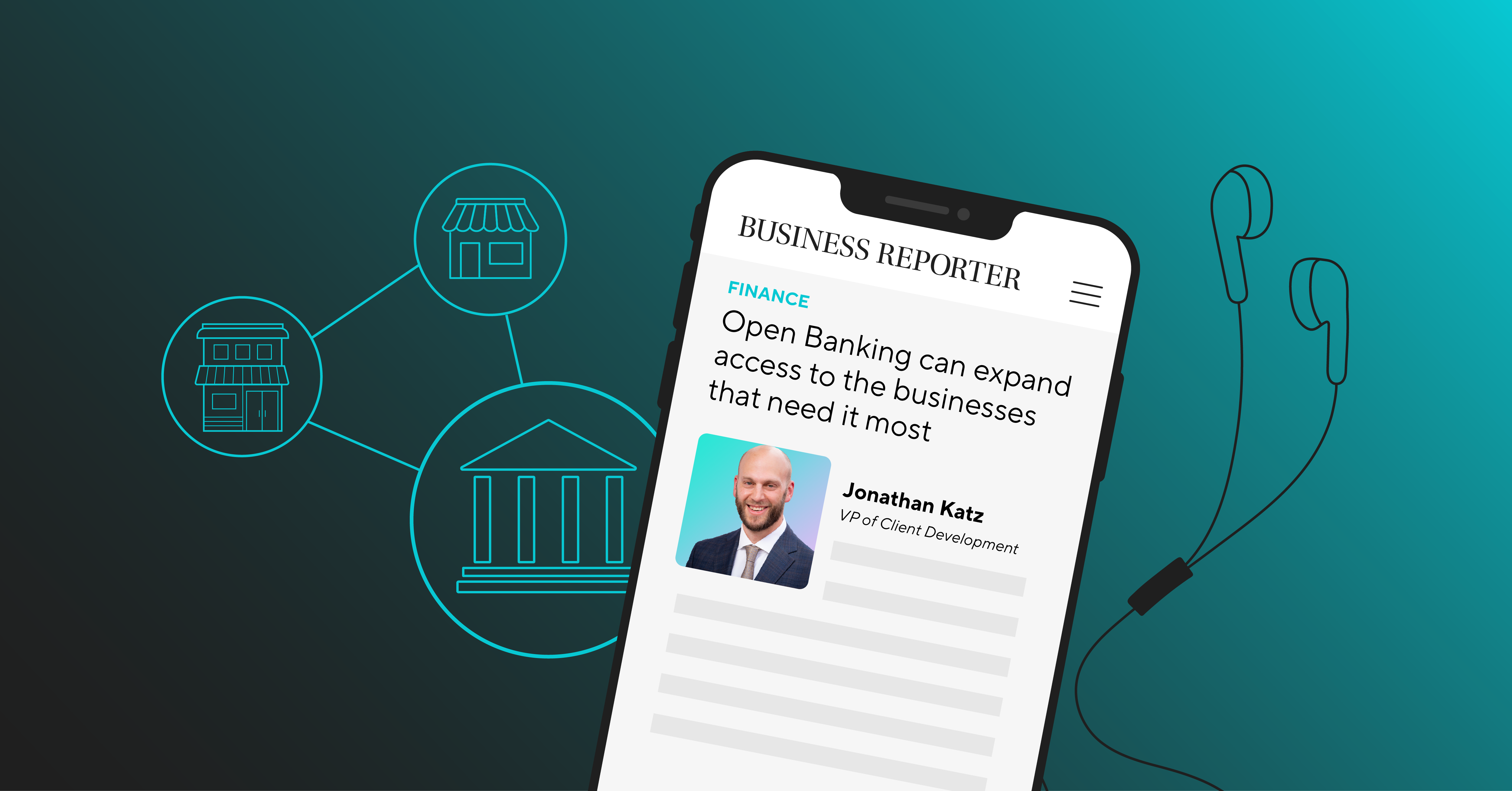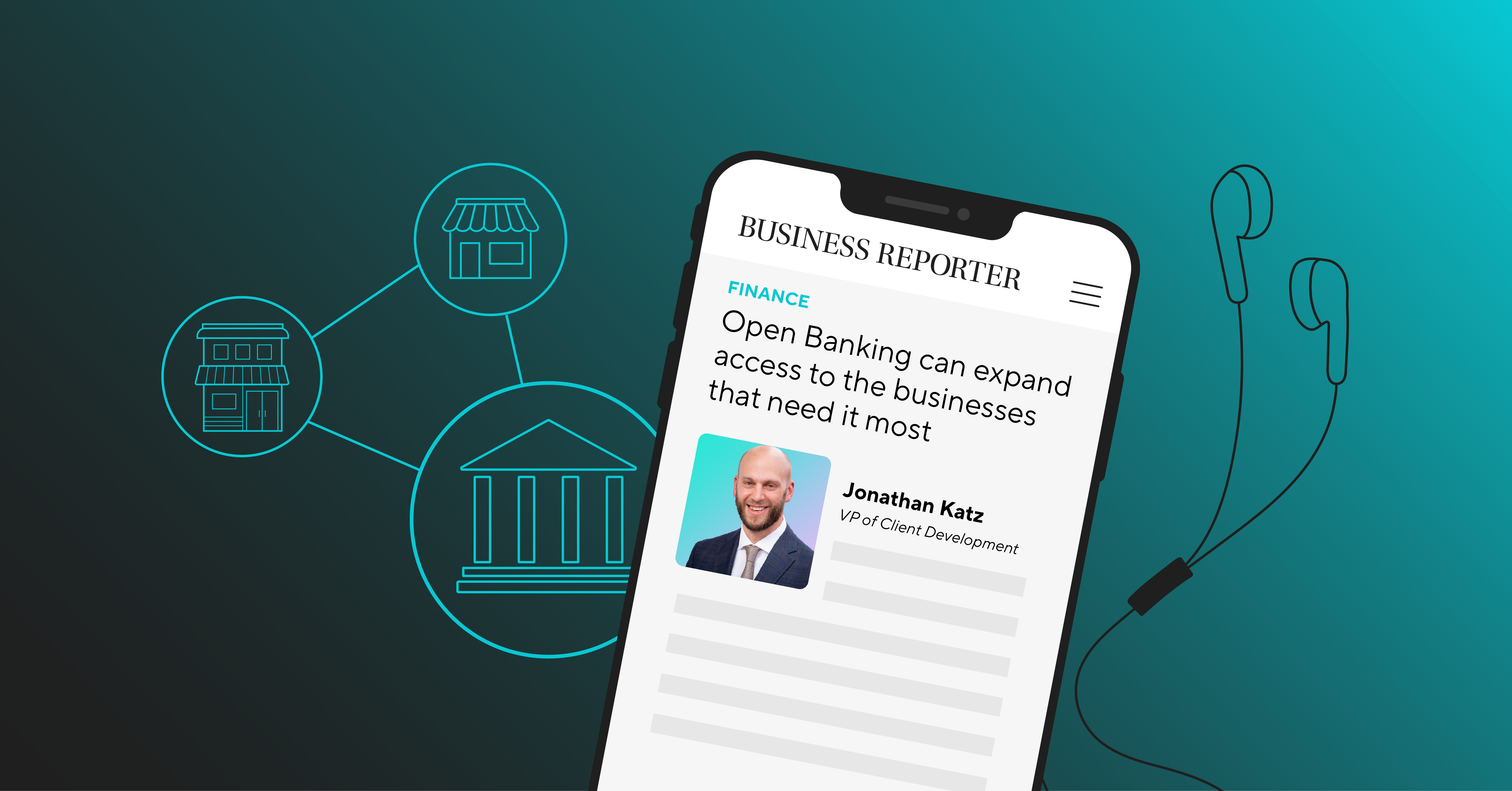This is a reprint of an article and podcast that originally appeared on Business Reporter on March 13, 2023.
By necessity, policymakers in Washington DC have spent much of the past two years focused on addressing short-term crises. The unprecedented scale of Covid's economic impact required this narrow lens, as the government rapidly enacted stimulus programs and lending facilities to mitigate the pandemic's financial effects, particularly for the small business community - the segment of the US economy that employs more Americans than any other.
With the worst of the pandemic behind us, Washington can begin thinking long-term about how to significantly - and efficiently - improve small businesses' access to affordable credit. A first step in the right direction would be implementing Open Banking.
At the height of the pandemic, millions of small business owners, particularly in rural and minority communities, needed to rely on emergency lending programs. And while these programs certainly had their issues, they also illustrated how critical open banking can be to the US economy.
Take the most notable example, the Paycheck Protection Program (PPP). Deployed through the lending infrastructure of thousands of banks and civic and private lenders in collaboration with the US Treasury, IRS and Small Business Administration (SBA), the PPP experiment successfully combined the best features of the private and public sectors and emphasized a digital, customer-powered underwriting environment. Consider how the federal government could capitalize on the PPP experience and initiate a shift to an open banking regime that would allow small business owners to take full control of their financial data, held in various places - their bank, the IRS, their credit card company - to obtain affordable credit.
Today, one of the biggest challenges to expansion and automation of affordable small business underwriting is the difficulty of compiling standardized financial information from loan applicants that can be fed into credit-decisioning models. Unfortunately, there is currently no quick and secure way for lenders to universally verify the information provided by small businesses' credit applicants.
Although the IRS holds significant data that would address this issue, an applicant for a small business loan often must submit paper copies of their tax-related documents to a lender and then wait, sometimes for days, until the lender receives verification from the IRS through a time-consuming and labor-intensive process - if the documentation is verified at all. Enabling small business lenders to easily access taxpayer data in a machine-readable format, held in sources maintained by the federal government, with the consent of a small business loan applicant would solve this problem.
Thankfully, the CFPB is in the process of proposing a rule to implement Section 1033 of the Dodd-Frank Act, which would provide consumers and small businesses electronic access to their financial data and the right to share this information with the third-party financial providers of their choice. By breaking down the barriers that currently prevent small businesses from sharing whichever financial data they feel will increase their chances of loan approval, the CFPB could unleash a wave of affordable credit availability for the market, particularly as federal economic supports are winding down.

Open Banking can expand access to the businesses that need it most
Business Reporter
Learn more about how banks are breaking down the barriers to digital innovation in our industry research report.
 Download Report
Download Report
